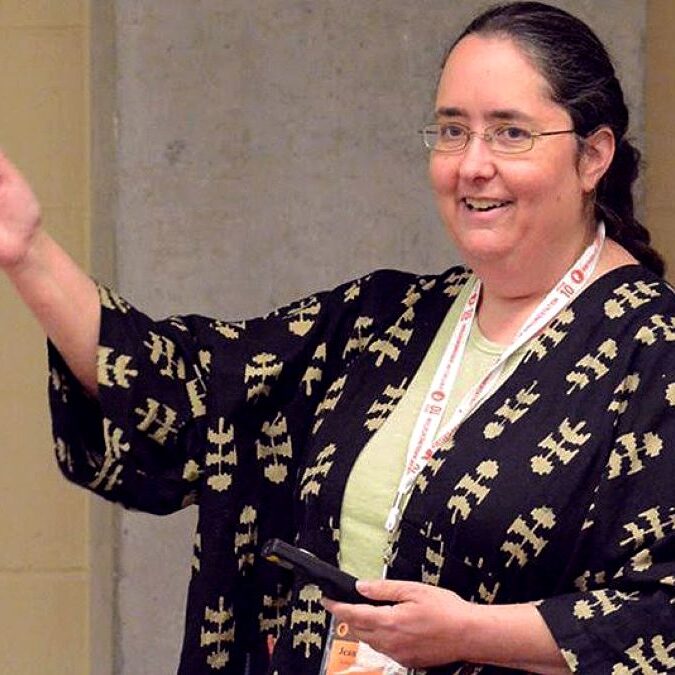
- This event has passed.
Jean Goodwin – Scientists’ Responsibilities in the Public Sphere: the Case of COVID Mask Recommendations | GES Colloquium

GES Colloquium Home | GES Colloquium MediaSite Live-Stream | YouTube Library (Past Colloquia)
Scientists’ Responsibilities in the Public Sphere: the Case of COVID Mask Recommendations
Note: Colloquium will be held via Zoom until the university resumes normal operations. See Virtual Colloquium: Zoom Instructions for new registration information.
Speaker: Jean Goodwin, J.D.-Ph.D., SAS Institute Distinguished Professor of Rhetoric & Technical Communication, NC State
Website | Email | Twitter: @jeangoodwin and @PublicSci_NCSU
Abstract
Any scientist doing public-facing work should occasionally be reflecting on what responsibilities they are willing to undertake—what roles they want to play. Using the familiar typology laid out by Roger Pielke, Jr., are they setting out to be pure scientists, science arbiters, honest brokers or advocates? We’ll use a relatively minor corner of the broader controversy swirling around COVID-19 as an opportunity for reflection in this chaotic and confusing moment. If you have a moment to prepare, take a look at the publication below.
Related:
Davies, A., Thompson, K., Giri, K., Kafatos, G., Walker, J., & Bennett, A. (2013). Testing the Efficacy of Homemade Masks: Would They Protect in an Influenza Pandemic? Disaster Medicine and Public Health Preparedness, 7(4), 413-418. doi:10.1017/dmp.2013.43. Retrieved from https://www.cambridge.org/core/journals/disaster-medicine-and-public-health-preparedness/article/testing-the-efficacy-of-homemade-masks-would-they-protect-in-an-influenza-pandemic/0921A05A69A9419C862FA2F35F819D55
Speaker Bio
A twisty path through law and classical rhetoric has led Jean Goodwin to an interest in scientists’ participation in civic controversies. As a member of the Leadership in Public Science cluster, “I not only ‘think’ but also ‘do’ that,” helping with programming intended to foster commitment to, and capacity for, public-facing science at NC State University.
Goodwin received her bachelor’s degree in mathematics and her J.D. from the University of Chicago, and her Ph.D. in communication arts from the rhetoric program at the University of Wisconsin-Madison. In addition to more than 25 years in the classroom introducing undergraduates to the rhetorical tradition, she has mentored graduate students across a variety communication subfields and academic departments. Her essays have been published in international journals in communication, philosophy and the sciences. She has served as a consultant on initiatives by the American Association for the Advancement of Science and the Union of Concerned Scientists to define the appropriate roles of scientists as advocates.
WordPress database error: [Unknown column 'wp_tec_occurrences.start_date' in 'SELECT']SELECT SQL_CALC_FOUND_ROWS wp_posts.*, CAST( wp_tec_occurrences.start_date AS DATETIME ) AS event_date
FROM wp_posts LEFT JOIN wp_term_relationships ON (wp_posts.ID = wp_term_relationships.object_id) LEFT JOIN wp_postmeta ON ( wp_posts.ID = wp_postmeta.post_id AND wp_postmeta.meta_key = '_EventHideFromUpcoming' ) LEFT JOIN wp_postmeta AS mt1 ON ( wp_posts.ID = mt1.post_id )
WHERE 1=1 AND wp_posts.ID NOT IN (14237) AND (
wp_term_relationships.term_taxonomy_id IN (521,773,780)
OR
wp_term_relationships.term_taxonomy_id IN (45,47)
) AND (
wp_postmeta.post_id IS NULL
AND
( mt1.meta_key = '_EventStartDate' AND CAST(mt1.meta_value AS DATETIME) >= '2026-03-04 07:29:31' )
) AND wp_posts.post_type IN ('post', 'page', 'attachment', 'tribe_venue', 'tribe_events', 'tribe_event_series') AND ((wp_posts.post_status = 'publish'))
GROUP BY wp_tec_occurrences.occurrence_id
ORDER BY event_date ASC, wp_posts.post_date ASC
LIMIT 0, 3